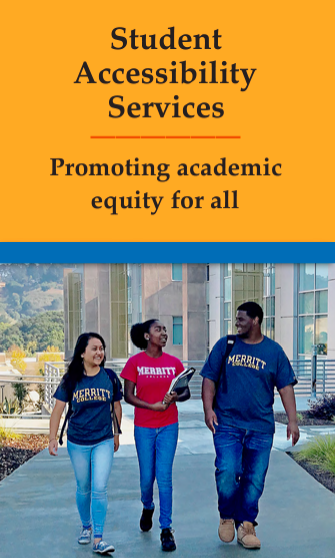It is estimated that 50,000 people per year suffer a head injury severe enough to keep them from returning to their pre-injury level of functioning. College age students are in a high-risk age group for this type of injury; two-thirds of all head injury cases occur among persons aged 15-24. Some students with Acquired Brain Impairment (ABI) have mobility problems that will require accommodations. Many do not, so their disability may not be readily apparent and some may be reluctant to reveal it to you. Many of these individuals have been through extensive rehabilitation; they are proud of the progress they have made and want to be self-sufficient. At the same time, they often are painfully aware that they do not learn as easily as they did before their injury, and this can cause great frustration.
Among the cognitive deficits persons with head injuries may experience are difficulties with concentration, memory, problem solving, and abstract reasoning. In our experience at Merritt College, the problem students mention most is memory. You may find that such students do well on test items that require them to recognize answers (multiple choice, matching) but do poorly on items requiring total recall (fill in the blank, essay).
Definition:
Acquired Brain Impairment (ABI) means a deficit in brain functioning which is non-degenerative and is medically verifiable, resulting in a total or partial loss of one or more of the following: cognitive, communication, motor, psycho-social and sensory perceptual abilities. (Administrative Code, Title 5)
Students with acquired brain injuries enroll in High-Tech Center courses to learn keyboarding and word. In some cases, testing accommodations such as extended time or use of a scribe are appropriate for students with acquired brain injuries.
Students with ABI may demonstrate one or more characteristics and the form may be mild, moderate, or severe:
- Difficulty organizing thoughts, cause-effect relationships, and problem solving
- Difficulty processing information and word retrieving
- Difficulty generalizing and integrating skills
- Difficulty interacting with others
- Compensating for memory loss
- Needing established routines with step-by-step directions
- Needing repetition or some type of reinforcement of information to be learned
- Demonstrating poor judgment and memory problems
- Exhibiting discrepancies in abilities such as reading comprehension at a much lower level than spelling ability
- Having difficulty with projection and clarity in voice
Possible Accommodations:
- Alternative testing (extended time, reader, scribe, distraction reduced setting, and/or computer)
- Note-taking assistance
- Academic support
To arrange for an appointment with a DSP Counselor:
- Download the Disability Verification Form.
- Complete the form.
- Call 510-436-2429 or drop by R-109 to make an appointment.
- Bring completed form(s) and supporting disability documentation to your appointment.




